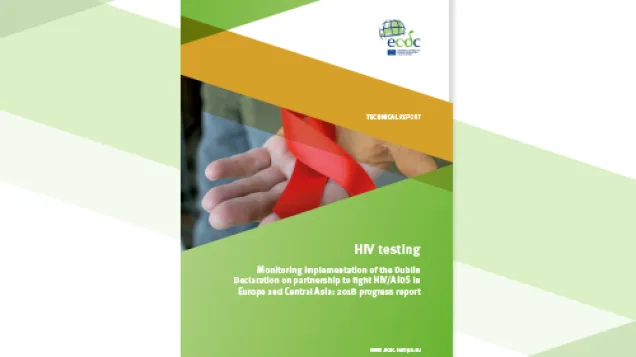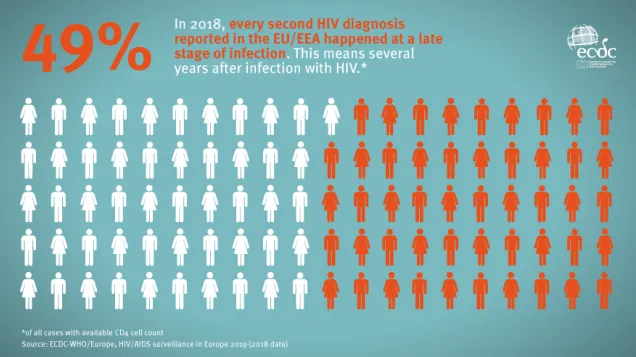ECDC Evidence Brief: Pre-exposure prophylaxis for HIV prevention in Europe and Central Asia
Executive Summary
PrEP (pre-exposure prophylaxis) is very effective at preventing HIV acquisition when taken as prescribed. It is an essential element in the ‘combination prevention’ necessary to reach the Sustainable Development Goal of ending the AIDS epidemic by 2030.
Since 2016, there has been an increase in the number of countries in the WHO European Region implementing PrEP, either as part of national healthcare provision or in demonstration projects.
There is evidence of considerable ‘informal’ use of PrEP by people who access it online or by other means. Not all of them inform their sexual health specialists, which means that they may not be properly monitored and run the risk of possible implications for their health.
Given the current levels of risk for HIV acquisition, improved access to PrEP and greater progress in its implementation can have a positive impact on HIV incidence, especially in the Centre and East sub-regions of Europe where implementation is very low.
Improved data collection and surveillance on PrEP uptake and outcomes and the sharing of best practices (particularly regarding feasibility, cost and technical matters) is needed to support the roll-out of PrEP in the Region.
Pre-exposure prophylaxis for HIV prevention in Europe and Central Asia
English (610.1 KB - PDF)More on the topic
Share this page



